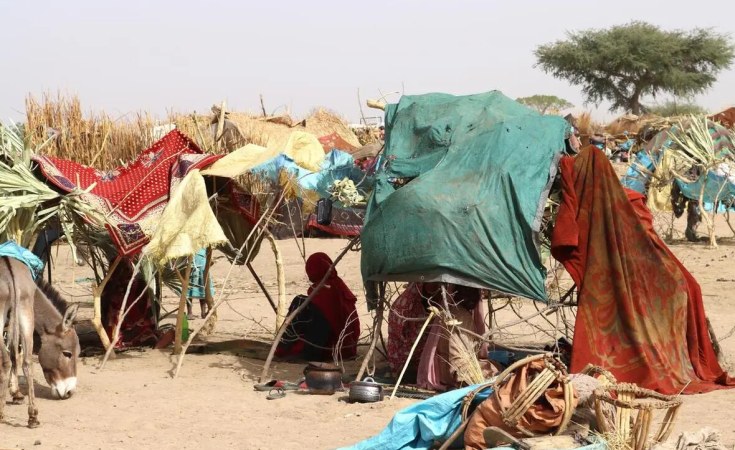The World Health Organization says that fighters in Sudan have occupied the national public laboratory holding samples of diseases including polio and measles, creating an "extremely, extremely dangerous" situation.
According to Nima Saeed Abid, the WHO's representative in Sudan, fighters "kicked out all the technicians from the lab... which is completely under the control of one of the fighting parties as a military base."
He did not say which of the fighting parties had taken over the laboratory.
Abid said he had received a call from the head of the national laboratory in Khartoum on Monday, a day before a US-brokered 72-hour ceasefire between Sudan's warring generals officially came into effect after 10 days of urban combat.
"There is a huge biological risk associated with the occupation of the central public health lab," said Abid.
He pointed out that the lab held so-called isolates, or samples, of a range of deadly diseases, including measles, polio and cholera.
The director of the lab had also warned of the danger that "depleting stocks of blood bags risk spoiling due to lack of power.
"In addition to chemical hazards, bio-risk hazards are also very high due to lack of functioning generators," Abid added.
The UN health agency also confirmed 14 attacks on healthcare facilities during the fighting, killing eight and injuring two.
The fighting in Sudan has pitted forces loyal to army chief Abdel Fattah al-Burhan against those of his former deputy Mohamed Hamdan Daglo, who commands the Rapid Support Forces (RSF).
Meanwhile, the WHO said the Sudanese health ministry has put the number of deaths so far at 459, with a further 4,072 wounded, but the toll could not be verified.
Up to 270,000 could be displaced
The UN refugee agency meanwhile said it was bracing for up to 270,000 people to flee Sudan into neighbouring Chad and South Sudan.
Laura Lo Castro, the UNHCR's representative in Chad, said some 20,000 refugees had arrived there since the fighting began 10 days ago.
Speaking to reporters in Geneva via video-link, she said the agency expected up to 100,000 "in the worst case scenario".
Her colleague in South Sudan, Marie-Helene Verney, meanwhile said that around 4,000 of the more than 800,000 South Sudanese refugees living in Sudan had returned home since the fighting began.
Looking forward, she told reporters that "the most likely scenario is 125,000 returns of South Sudanese refugees into South Sudan."
She added that the UN expects up to 45,000 Sudanese to flee as refugees into South Sudan.


